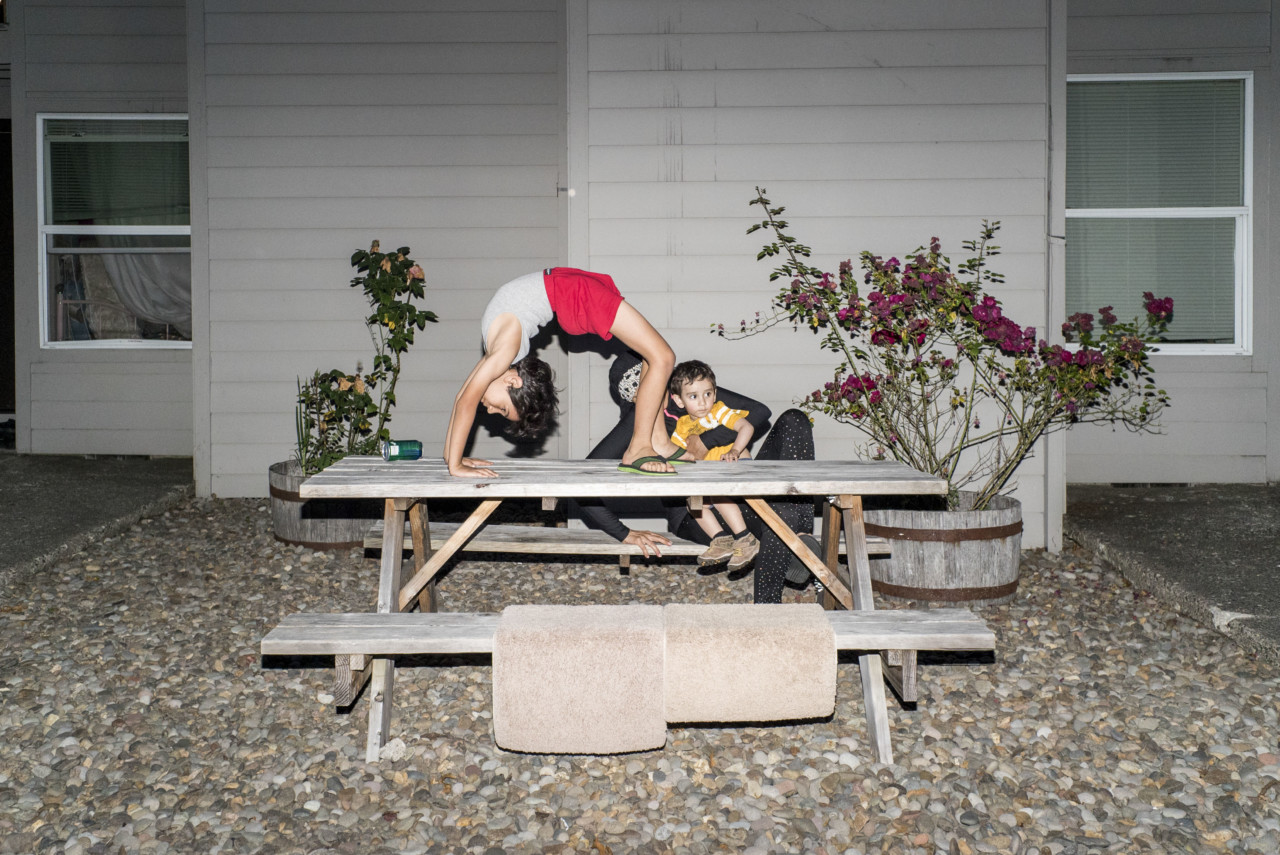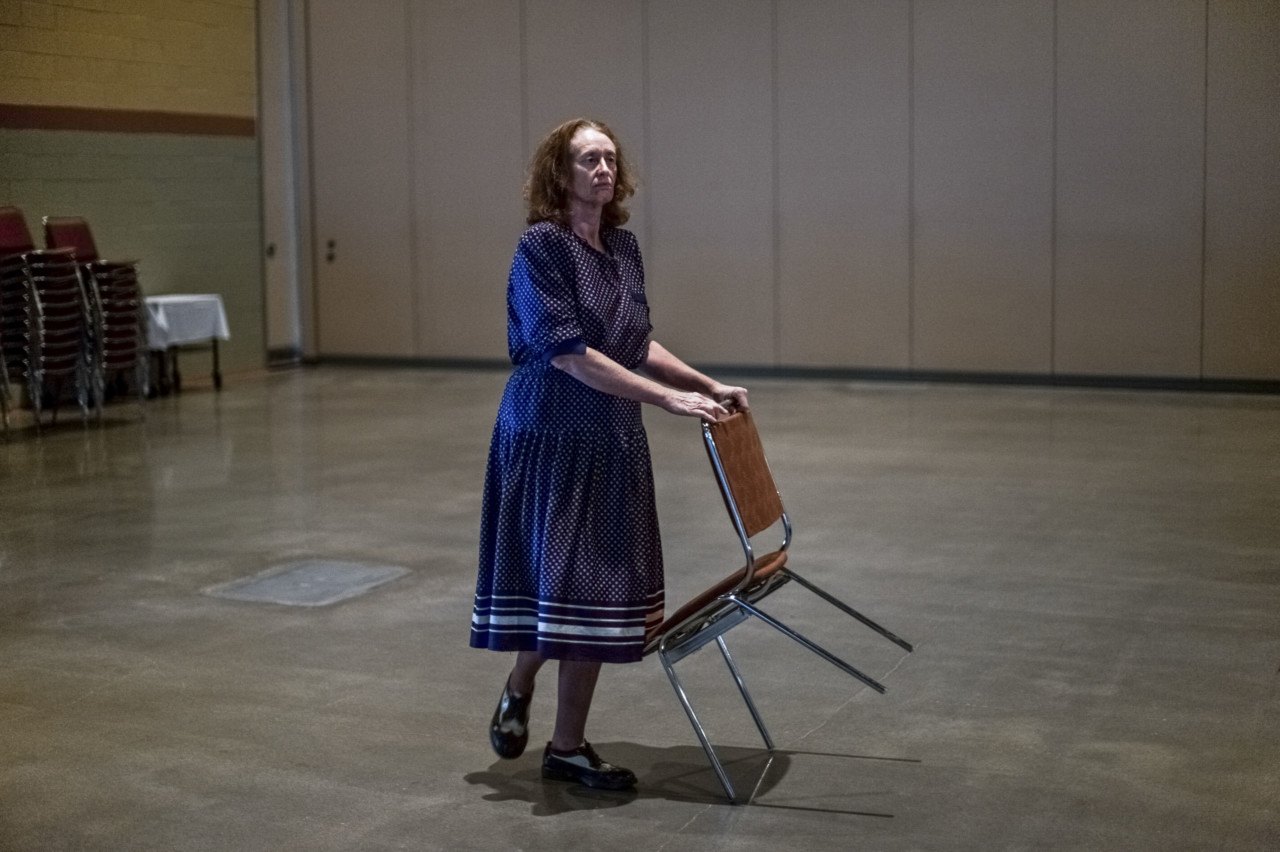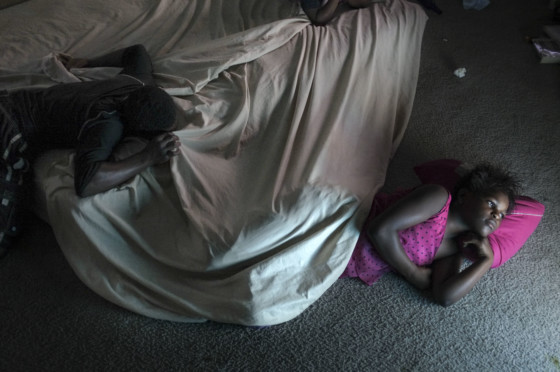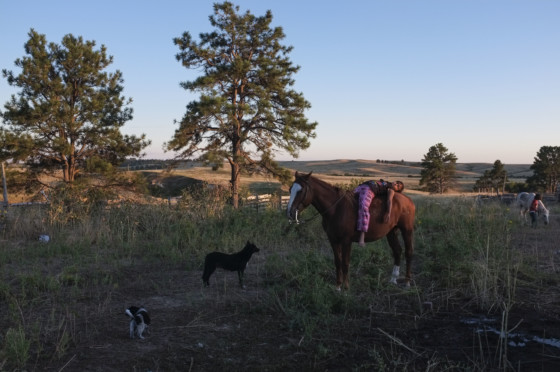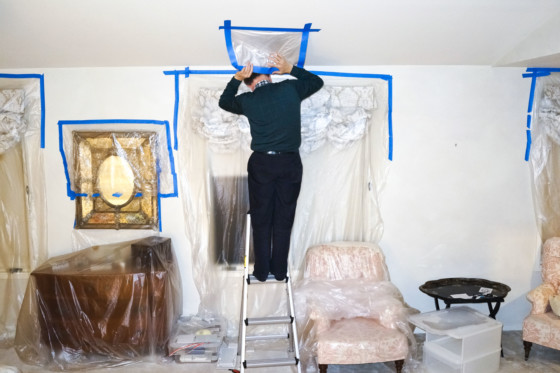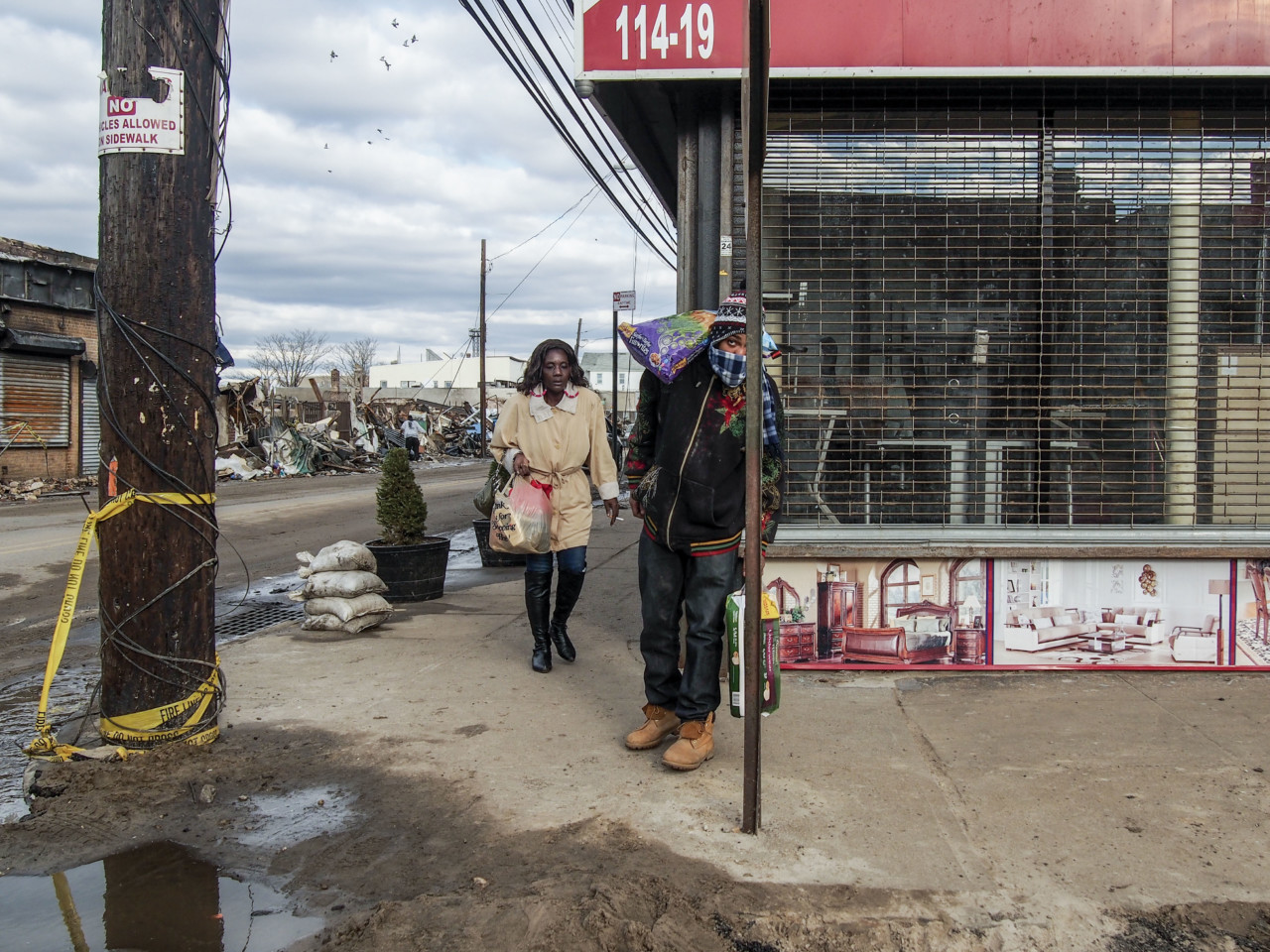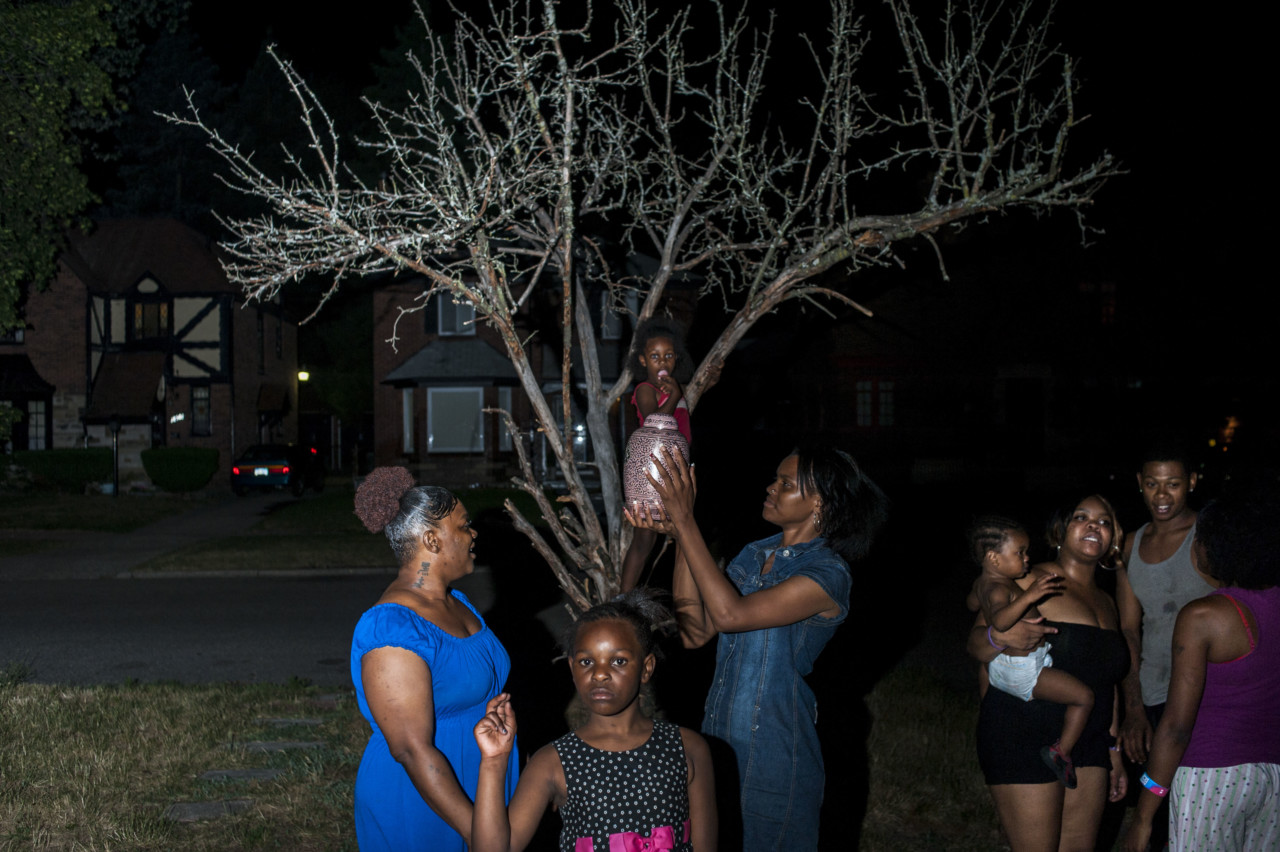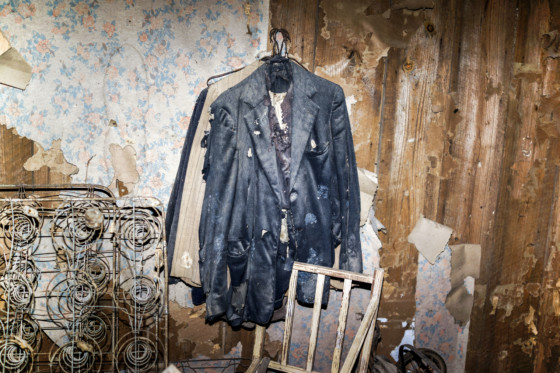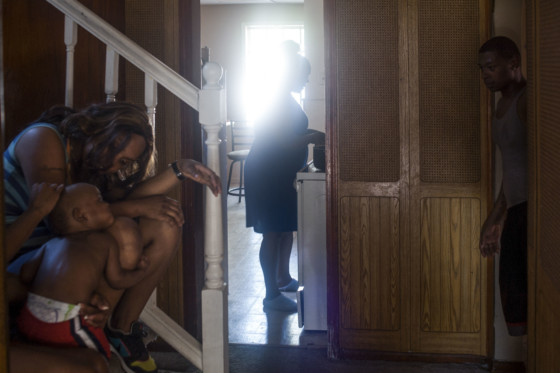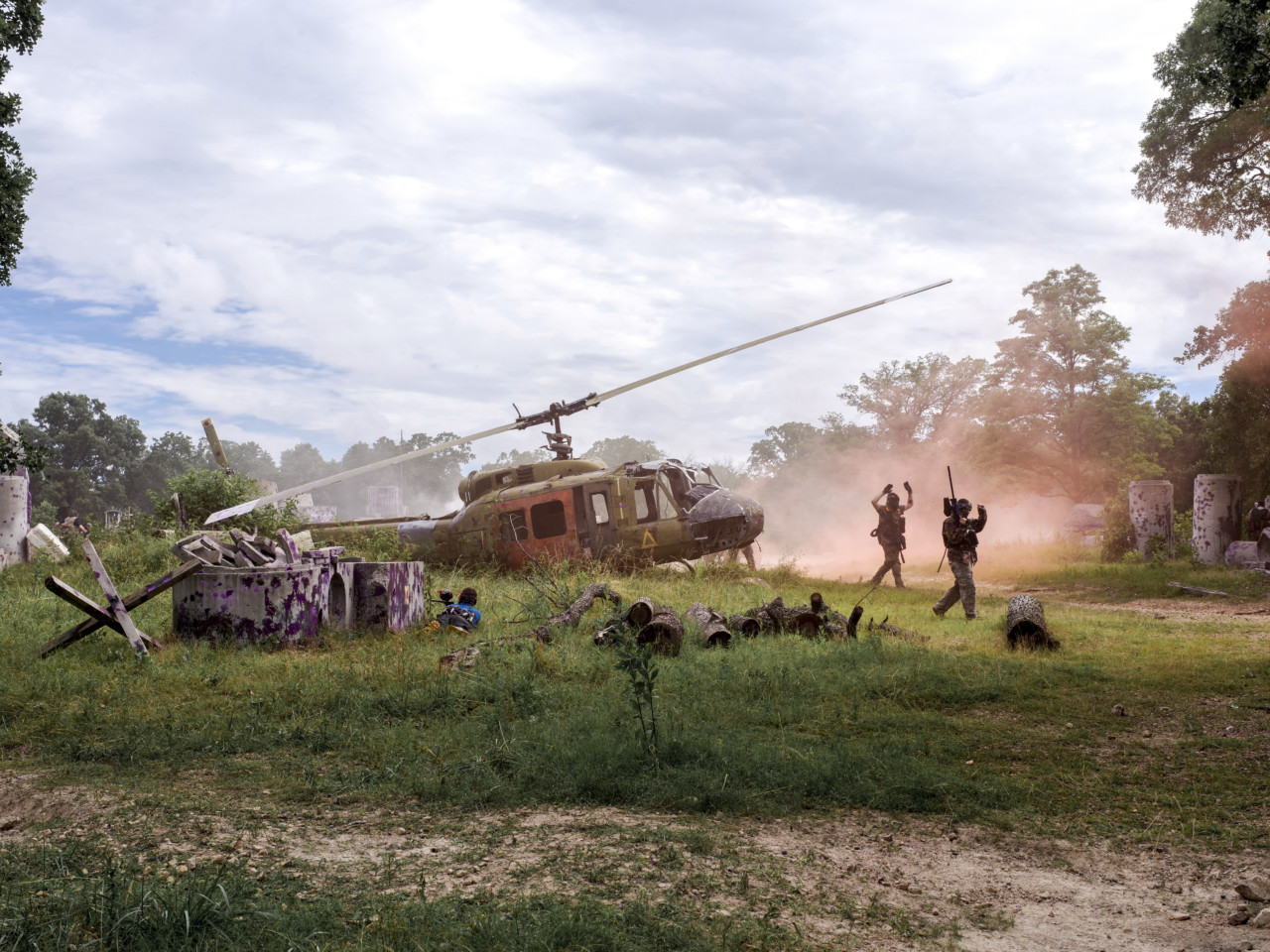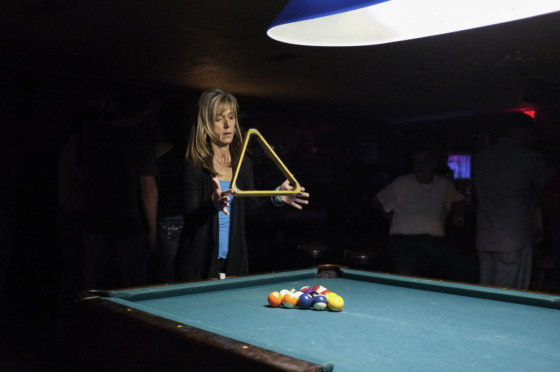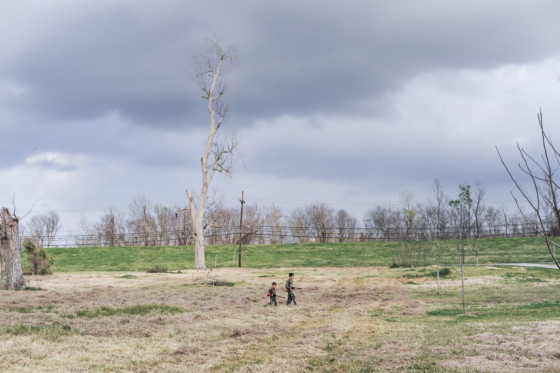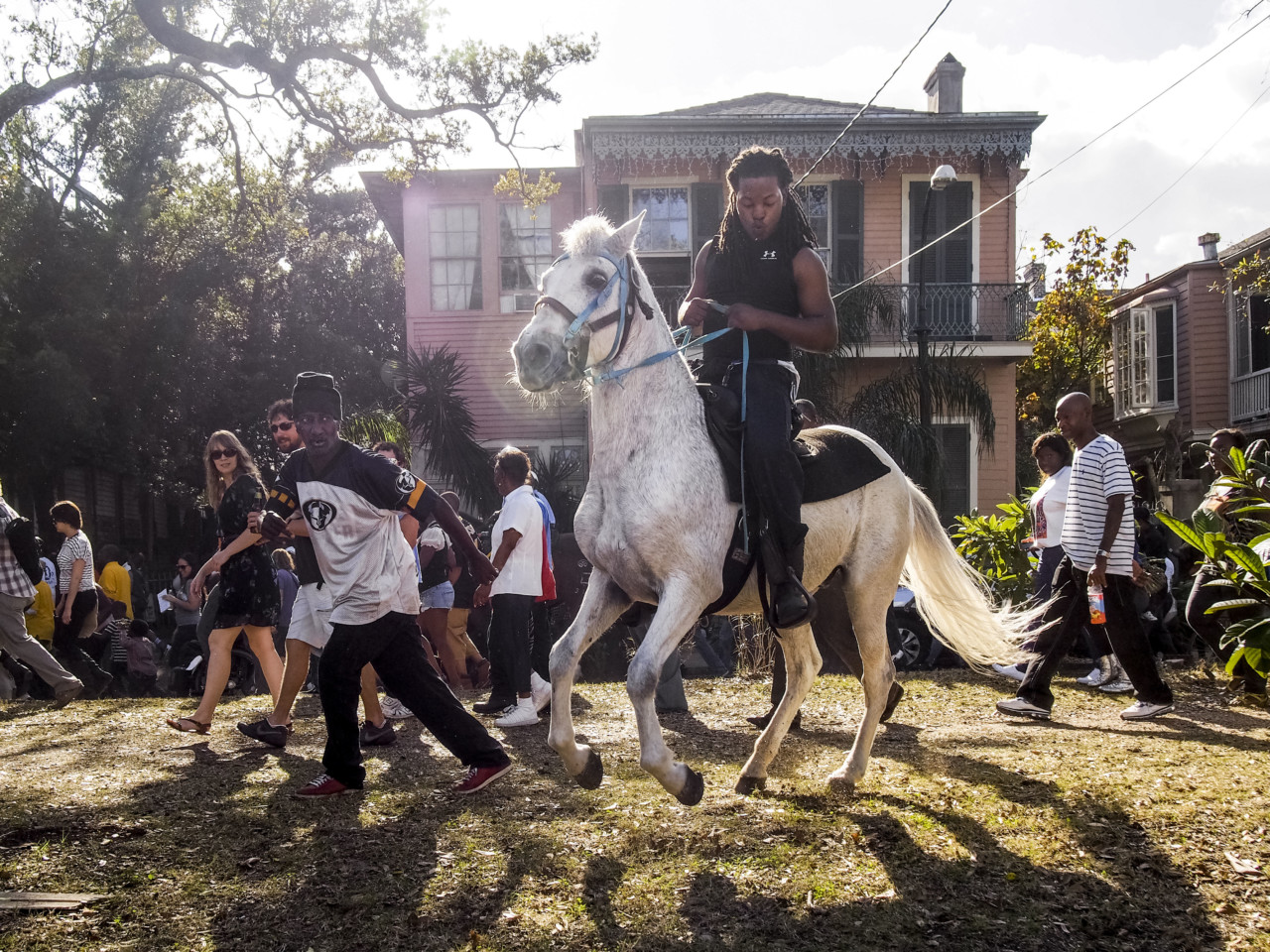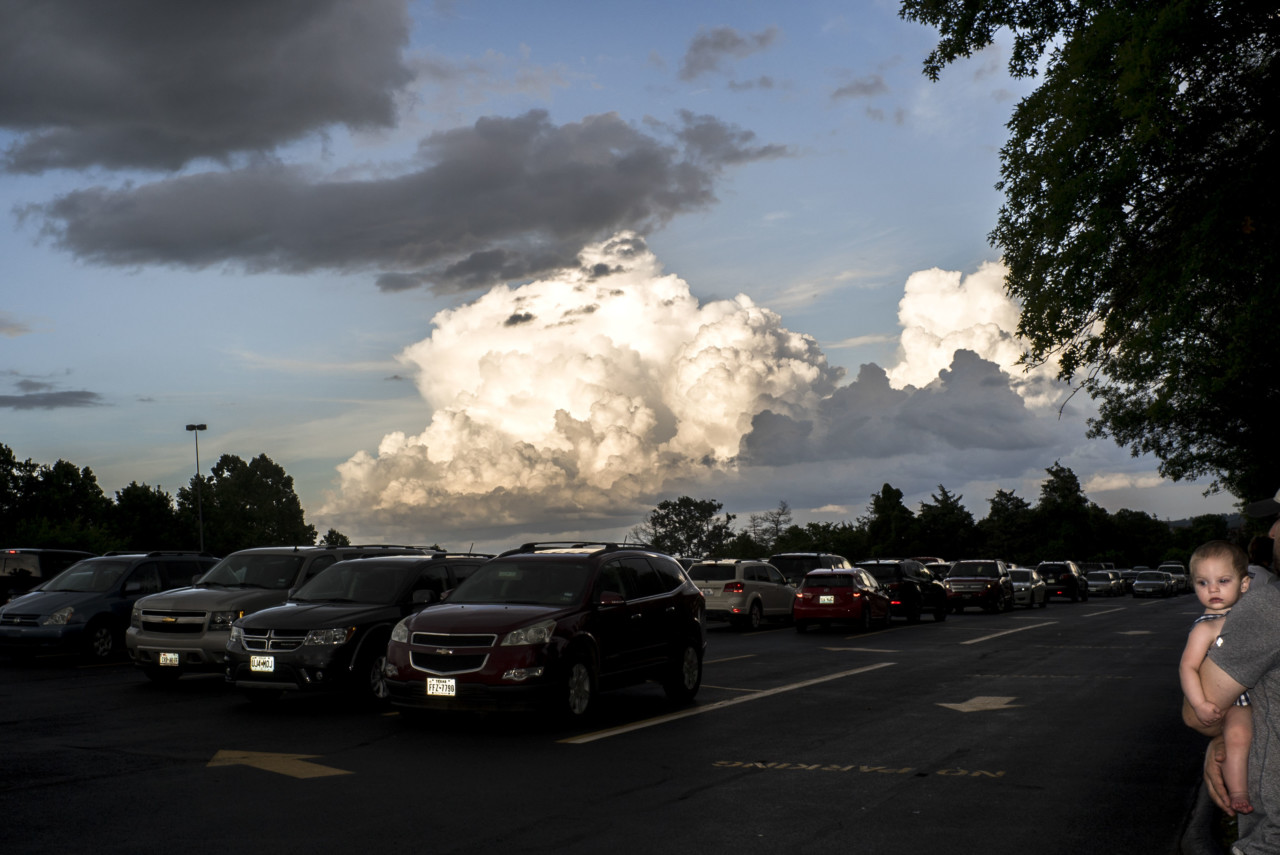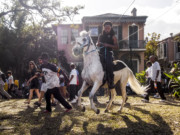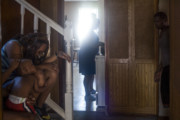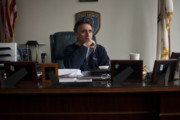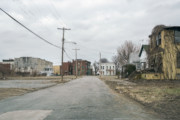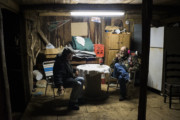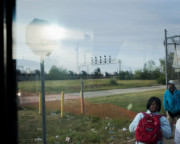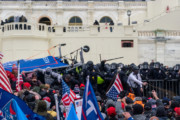Buzzing at the Sill
Thomas Dworzak quizzes Peter van Agtmael about his new book that explores the margins of contemporary America in a heightened political landscape
‘Buzzing at the Sill’ is a body of work by Peter van Agtmael undertaken on his return home to America after years as a war correspondent in Iraq and Afghanistan, trying to understand his experience and his country. During the September 11 attacks and the invasion of Iraq, he was a history student at Yale; he spent the subsequent years documenting the wars that followed and the parallel lives of Americans back home. The work is a mixture of reflections on war, memory, militarism, identity, ethnicity, social class, surrealism and landscape. ‘Buzzing at the Sill’ is the continuation of Disco Night Sept. 11, van Agtmael’s last book about the wars in Iraq and Afghanistan. Upon the publication of Buzzing at the Sill Peter van Agtmael was interviewed by his friend, contemporary and fellow Magnum photographer Thomas Dworzak about documenting America and the conditions that led to the inevitability of Trump’s rise to power.
Thomas Dworzak: How much do you see this as a sequel to your previous book?
Peter van Agtmael: I see all these little books as chapters to one big book looking at America in its many different forms and contradictions. I started off with being interested in how America waged war which led to an interest in the aspects of America that created our character, which is a lot of what I am looking at in this book.
T: Is it a little bit weird that the book came out after Trump was elected?
P: I think the book has a lot to do with the margins of America whose invisibility created the conditions for someone like Trump to be elected.
T: Was it meant to come out after the election?
P: Loosely, I was trying to tie it to the end of one era and the beginning of another. The truth is I could have taken many of these pictures under the Trump administration, or the Bush, or the Clinton, or the Reagan. During the Trump administration I’ll likely have another set of priorities which is a bit more current. What I photographed under Obama was a lot about looking at the past, as he more or less maintained the status quo and there felt like space for reflection. That’s not to say important things didn’t happen domestically. Race came very much to the forefront again, but what I imagine we will see under Trump will be more extreme. Obama gave the space to look in the corners and under the bed of America. At least that’s how I interpret it now.
T: Does this overlap with your previous book?
P: I think it overlaps in certain places. A lot of this work was shot alongside Disco Night Sept 11. I could just mash the two books together with the work I am doing now and the work I will do in the future but I’d like these books to be self-contained as broad thematic chapters. Partly it’s just the discipline of creating, so I feel like I have a certain structure to know what I am doing so I don’t feel like I am just collecting and collecting and collecting photographs for one vast crazy book.
"Obama gave the space to look in the corners and under the bed of America"
- Peter van Agtmael
T: Is it the structure of the book that decides when you make that break? You don’t decide ahead of time how long you are going to work on something, right? This is a continuation of your life. Where do you pull the plug or make that break?
P: It’s not that it’s finished but it’s finished for the time being and I decided to make a structure out of it. Something that defines it for me and something to hopefully resonate a bit at an interesting moment in history. I still believe in the idea that books, if you come across the right one at the right time, can mean a lot to your life. They certainly did for me. I’d like to be part of that dialogue if that’s possible.
T: Are you already alluding to the next one with this book? Are there some things that you didn’t include because you wanted to save them for later?
P: Yes, very much so. I already had the framework of Buzzing at the Sill planned out when I was working on Disco Night. I have the framework for my next few books planned out as this one comes out. This book starts where Disco Night leaves off.
T: If you put the three of them next to each other they are sort of similar size.
P: I want there to be overlap but I don’t want to say the same thing again and again. To me, photography is as much about thinking as seeing and feeling and I always want to be moving forward with my thinking.
T: Why would you want photography to be the means to not think about something the same way?
P: Photography is the thing that fulfills me the most. I feel this almost spiritual wellbeing when I am photographing. I assume when people have a religious calling, there is something inside of them that is so strong that it’s beyond logic or definition. Photography is that for me, and I don’t really question it too much because I’ve felt it in my bones for a long time. That feeling hasn’t weakened. Honestly, it wouldn’t necessarily have been my choice to be a photographer. I didn’t grow up saying I wanted to be a photographer. It hardly crossed my mind, but when I was confronted with it, it was something so powerful I couldn’t ignore it.
T: How has (Robert Frank’s) The Americans influenced your work? What does it mean for you?
P: What I like the most about The Americans is that it’s the first book that decisively created a non-linear narrative that cut across all sorts of different worlds in America and showed that all the pieces could fit together in a timeless way. That’s the lesson. I don’t go through the Americans and sit there in awe, it’s more about what it represents than the book itself. But all these children of Robert Frank, whose work I admire, that’s what is interesting to me—the many worlds he created with that book. That’s about timing as much as anything else. We seem to credit Robert Frank far more than Walker Evans, for somewhat arbitrary reasons.
T: What do you think the role of photography will be ten years from now?
P: Photography is pretty well imprinted on civilization at this point. I hardly think its value is going to increase dramatically for the population as a whole and why would you need that? Pictures are an important part of most people’s lives and I’m happy to be a photographer on those terms.
EPILOGUE
A Proust questionnaire between Thomas Dworzak and Peter van Agtmael
What’s your favorite virtue in a photographer? Some virtues I like in some people and other virtues I like in others.
Favorite occupation? Besides photographer?
Favorite heroes in fiction? Tintin? I like simple heroes. When they have too much depth they are a little too vulnerable, and with fiction I prefer to escape. I’m really into reading these epic bestsellers from the 70’s these days… Shogun, Winds of War etc. That might just have to do with a certain escapist frame of mind I’m in.
Favorite heroine? The heroines in fiction that I like are probably the ones in the Hayao Miyazaki films. Chihiro from Spirited Away stands out.
Favorite painters and composers? Bob Dylan. That’s a pretty obvious one but he is the whole package and his work has moved me since I was a kid. Favorite painters? Egon Schiele and Hieronymus Bosch. I’d probably give you a different answer tomorrow.
Favorite heroes/heroine in real life? Ahh hell. I don’t really think in those terms. Right now I admire Angela Merkel. I admire her moral courage. She is one of the few leaders who has any backbone.
What characters in history do you most dislike? Adam and Eve
Favorite food? Beer and a good steak
What character in history do you hate? The guy who shot Franz Ferdinand. Gavrilo Princip. He was the trigger puller for one hell of a mess of chaos these past 100 years. Though marking the beginning of an era is always a difficult historical question.
The military event you admire the most? Well it’s not the invasion of Iraq, certainly. Let’s say the D-Day landings. That’s easy. It’s very white bread. I could come up with a more interesting one. The Battle of the Teutoborg Forest in 9 CE seems to have set up many of the forces of the modern world. I’m not sure it’s admirable, but it’s fascinating.
The reform you like the most? The Civil Rights Act of 1964.
The natural talent you would like to be gifted with? I wish I was a good musician.
How would you wish to die? Old and out of it. Painlessly. Surrounded by a lot of people I love.
What’s your present mindset? Disconcerted.
Favorite motto? Sic transit gloria mundi (thus passes the glory of the world or all that’s fair must fade) probably. It’s a bit pretentious but it’s a good one.


